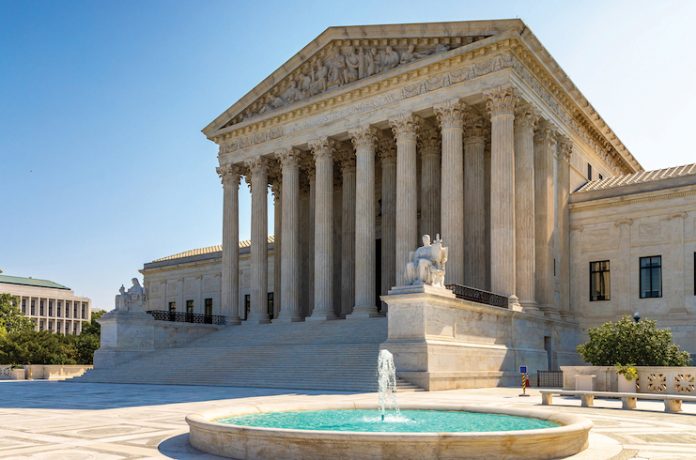Picture this: A person browsing a hotel’s website studies the property online. You might think they’re carefully planning a visit, but that’s not the case. In fact, they don’t intend to show up at the establishment at all. Instead, they’re preparing to sue the hotel—and hundreds of others—in an effort to win fees just for filing the lawsuit.
Situations like this are known as “tester” lawsuits, and hotels are among the thousands of businesses hurt by these frivolous lawsuits each year. In a tester lawsuit, people who in many cases have no intention of actually visiting the hotel sue the owners for allegedly violating the Americans with Disabilities Act (ADA).
It is important to note the ADA is a critical civil rights law that was enacted to ensure all Americans could access facilities. Hoteliers are in the business of serving customers and strive to ensure all guests can access and enjoy their properties.
The individuals behind these tester lawsuits, however, are often serial plaintiffs who pursue hundreds of hotels and other businesses at a time. These predatory actions often target small hotels and bed-and-breakfasts and coerce quick settlements of thousands of dollars. For these small-business owners, the cost of litigating these cases could push them into bankruptcy, making them easy marks for plaintiffs surfing the web from thousands of miles away.
This disturbing trend has costly and detrimental ramifications for hoteliers across the country. Fortunately, the U.S. Supreme Court recently decided to take up one of these tester cases: Acheson Hotels, LLC v. Laufer. The justices will hear the case during the October term. A favorable decision could limit the number of click-by and drive-by lawsuits against hoteliers. That’s great news for America’s hoteliers, who live in constant fear that their business and their livelihood will become the next target for these unscrupulous actors and their lawyers.
The number of ADA Title III case filings in federal court increased from 2,722 lawsuits in 2013 to 8,694 in 2022, according to the law firm Seyfarth Shaw LLP. Of those filed in federal court last year, website accessibility lawsuits comprised 37 percent of all ADA Title III lawsuits—the largest percentage recorded, according to the firm.
Understanding Acheson Hotels, LLC v. Laufer
Acheson Hotels, LLC v. Laufer involves a self-appointed tester who unilaterally determines whether hotel websites are ADA compliant. This plaintiff has filed 600 lawsuits against hotel owners and operators.
In this case, the allegations are that the website for an inn owned by Maine-based Acheson Hotels did not contain enough information about the property’s accommodations for people with disabilities. The district court ruled the plaintiff did not have standing to sue because she had no plans to visit the hotel and therefore was not actually harmed. The First Circuit Court of Appeals disagreed with the district court’s decision and reinstated the lawsuit. Several other federal courts have also addressed this issue and are split on the outcome under the law, which helped to convince the Supreme Court to hear the case.
When the Supreme Court hears Acheson Hotels, LLC v. Laufer later this year, the justices will decide whether a tester plaintiff who merely visits a website has standing to sue under the ADA for injury even when the plaintiff has no intention of visiting the business. The Court’s decision could potentially restrict litigation only to cases with merit, limiting options for serial tester plaintiffs abusing our legal system. A ruling in favor of Acheson Hotels could give hoteliers peace of mind that their businesses won’t be targeted with predatory lawsuits.
AHLA is Taking Action
AHLA is taking action to support key players in Acheson Hotels, LLC v. Laufer. Leading up to the Supreme Court’s recent announcement, AHLA, the Restaurant Law Center, the National Federation of Independent Business Small Business Legal Center, and five AHLA partner state associations filed an amicus brief in support of Acheson Hotels and urged the justices to side with Acheson.
AHLA and the Restaurant Law Center will also submit another amicus brief addressing the merits of the case. We will continue to highlight the negative impact of predatory lawsuits, such as tester cases, on hoteliers across the country as we work to protect hard-working hoteliers and their businesses.










